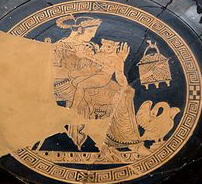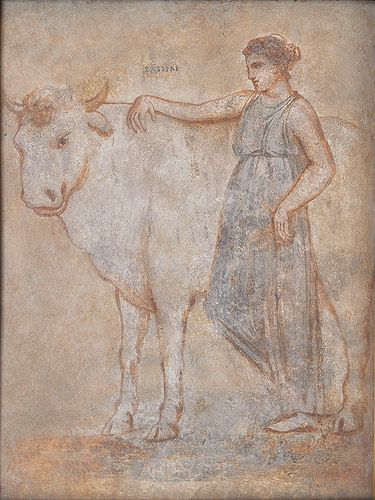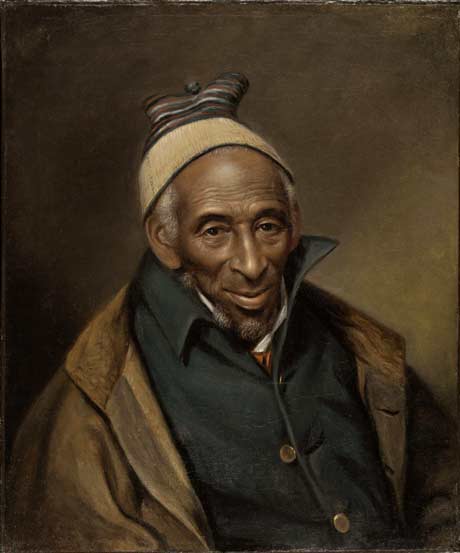|
The prophet Ezekiel revisits the question of whether children are
responsible for the sins of their parents:
“The word of the Lord came to me again, saying,
“What do you mean when you use this proverb concerning the land of Israel, saying: ‘The fathers have eaten sour grapes,
and the children’s teeth are set on edge’?
“As I live,” says the Lord GOD, “you shall no longer use this proverb in Israel “Behold, all souls are Mine;
the soul of the father as well as the soul of the son is Mine; the soul who sins shall die. But if a man is just
and does what is lawful and right; if he has not eaten on the mountains,
nor lifted up his eyes to the idols of the house of Israel, nor defiled his neighbor’s wife,
nor approached a woman during her impurity; if he has not oppressed anyone,
but has restored to the debtor his pledge; has robbed no one by violence,
but has given his bread to the hungry and covered the naked with clothing;
if he has not exacted usury nor taken any increase, but has withdrawn his hand from iniquity
and executed true judgment between man and man; if he has walked in My statutes
and kept My judgments faithfully— He is just; He shall surely live!” Says the Lord GOD.
“If he begets a son who is a robber or a shedder of blood, who does any of these things
and does none of those duties, but has eaten on the mountains or defiled his neighbor’s wife;
if he has oppressed the poor and needy, robbed by violence, not restored the pledge
lifted his eyes to the idols, or committed abomination; if he has exacted usury
or taken increase— Shall he then live? He shall not live! If he has done any of these abominations, he shall surely die; his blood shall be upon him.
“If, however, he begets a son who sees all the sins which his father has done,
and considers but does not do likewise; who has not eaten on the mountains,
nor lifted his eyes to the idols of the house of Israel, nor defiled his neighbor’s wife;
has not oppressed anyone, nor withheld a pledge, nor robbed by violence,
but has given his bread to the hungry and covered the naked with clothing;
who has withdrawn his hand from the poor and not received usury or increase,
but has executed My judgments and walked in My statutes— He shall not die for the iniquity of his father; He shall surely live! “As for his father,
because he cruelly oppressed, robbed his brother by violence, and did what is not good among his people,
behold, he shall die for his iniquity.”
(Ezekiel 18:1-18).
Even if you are the love child of John Dillinger and Ma Barker,
you need not despair of God's grace. But what to make of a case
where the children are held to account, not for wrongs committed by
their own personal family, who were innocent, but for crimes
committed by other persons, on grounds these wrong-doers were
similarly complected to themselves? Is this anything other than the
logic of a lynch mob? Even in the South, prior to the Civil War, most whites were not personally slave-owners.
Neither were the multitude of white Americans whose forebears were not in
the country at the time of the Civil War but only arrived thereafter.
As I sat on the bus and read Elijah Muhammad's screed against the
children of the slave-owner, I recollected that my mother's side of the family is Polish; when my grandmother came here, at the age of thirteen, she owned no slaves.
My paternal grandmother was born in Norway; when she came to this
country, she owned no slaves. Is there any more air-tight alibi than
residence on another continent at the time the crimes in question
were committed? My grand-parents were born too late to have been
ante-bellum slave-owners, had they even been in the country at the
time, but the accusation sticks no more solidly against those from
whom they came. Those who arrived from eastern Europe were as likely to have been,
themselves, the children of recently liberated serfs. Of course, if
you trace the family line all the way back to Adam and Eve, likely a
slave-owner or two will turn up, but so will more than a few slaves.
The remaining grand-father, born to a family already in the country
who lived north of the Mason-Dixon line, was no more the child of a
slave-owner than were they. There is great drama, and many tears shed, when the children of
slave-owners and the children of slaves join hands together on the
church platform. But to pretend that all white folk are children of
slave-owners, merely by virtue of their pigmentation, is not at all
correct. Demands for repentance premised on false accusation should
not be heard. We all do belong to corporate bodies, like church and
state; in a sense all Americans shivered at Valley Forge with
Washington's troops, or feel like they did. But they exaggerate the
prevalence and centrality of slavery.
To offer an example of this mind-set, consider Hitler's anger
against those German citizens who did not willingly fork over their
foreign currency deposits so that he could finance his military
build-up. Some of these people were Jews: ". . .I therefore consider
it necessary for the Reichstag to pass the following two laws: 1. a
law providing the death penalty for economic sabotage, and 2. a law
making the whole of Jewry liable for all damage inflicted upon the
German economy by individual specimens of this community of
criminals. . ." (quoted p. 221, The Wages of
Destruction, Adam Tooze). How can "all of Jewry" be made
responsible for the acts of certain individuals, never mind that
what is being criminalized is ordinary economic behavior? But this
is precisely the logic of slavery reparations: white people held
slaves, never mind which white people, and therefore any and all
white people must pay for the misdeeds of those similarly pigmented.
Criminal responsibility is assigned simply based on group
membership. Are we far here from Jim Crow and the logic of the lynch
mob? This concept, that white people, all of 'em, are the 'slave-owners'
children' who bear personal responsibility for slavery, started as
the teaching of an obscure cult, but has by now gone mainstream. In
a recent address to the nation, Michelle Obama said, "Living with
the knowledge that. . .there will be far too many who will never
see our humanity, who will project on us their own fears of
retribution for centuries of injustice and thus only see us as a
threat to be restrained. . ." (Michelle Obama,
quoted at Breitbart. com, 'Michelle Obama: Trump and Allies are
'Stoking Fears about Black and Brown Americans', by Hannah Bleau,
October 6, 2020). Does White America live in fear of
retribution from Black America? Really? Somehow this information
passed me by, as did the installment check for 'White Privilege.'
Must be in the mail. It does seem there is a bit of projection going
on; perhaps she believes White America deserves "retribution"? And
where did she get that idea, if not, ultimately, from Elijah
Muhammad, as transmitted through Malcolm X? Thus an idea which
cannot be defended politically, legally, or economically, has
vaulted from the cult world into the mainstream.
What about that minority of white Americans who actually are the
descendants of slave-owners? The number of these is not nil, though it
is nowhere near as sizeable as Elijah Muhammad thought it was. Do they owe either a moral debt, or a
collectible one? We do not normally make it legally possible for the grandchildren
of someone who may have suffered a civil wrong to sue the grandchildren of the party
who may have done it. There have been societies where children were legally obligated
to pay off their parents' debts: "We place a law in opposition to a law in this way:
among the Romans he who renounces his paternal inheritance does not pay his father's debts,
but among the Rhodians he pays them in any case; and among the Tauri in Scythia it was
a law to offer strangers in sacrifice to Artemis, but with us it is forbidden to kill a man near a temple." (Empiricus, Sextus; Laërtius, Diogenes; Patrick, Mary Mills; MacColl, Norman; Bevan, Edwyn (2015-07-09). The Sceptics: Pyrhonic Sketches, Life of Pyrrho, Sextus Empiricus, The Greek Sceptics, Stoics & Sceptics and Life of Carneades (p. 30).)
We have all seen the graduation videos where graduates write on
their mortar-boards how much money they owe in student loans:
$20,000, $30,000, whatever. Imagine if a baby laying in the cradle
could doodle on his diapers, $100,000, $1,000,000. How hopeless to
begin life owing more money than you can possibly ever pay back! So
we just don't do it the way they did it in Rhodes. Even to the present
day, people in Japan can inherit the debts of insolvent relatives,
though I'm informed they can petition the courts to be relieved of
this burden.
Closer to home, English common law is often cited as disallowing
the inheritance of debts, though it took a round-about path to get
there. At times, English law has allowed civil and even criminal liability
to meander down through the generations. On the positive side, this
results in the rise of the aristocracy, on the negative side, the
'corruption of blood.' This legal category is specifically
disallowed in the U.S. Constitution, as respecting treason, Article
III, Section 3, ". . .the Congress shall have Power to declare the
punishment of Treason, but no Attainder of Treason shall work
Corruption of Blood, or Forfeiture except during the Life of the
Person attainted. . ." Our founders preferred each individual born
into this world to start out with a clean slate. Realizing that,
unlike Rhodes and even arguably England in its aristocratic phase,
we do not allow the collection of debts from the
great-great-grandchildren of those who incurred them, then in
consequence even that minority of the white population who are
indeed children, or rather great-grandchildren, of slave-holders,
are not legally obligated to pay their forbears' debts, actual or
potential. This American way of doing things is not contrary to
God's law. Moses' law incorporates a schedule of debt forgiveness:
the Sabbatical year every seven years, the Jubilee the forty-ninth.
God did not want financial obligations to remain open forever; debt
is not to be passed down through the ages. It carries an expiration
date. And so, in the Messianic age, the children are not held
accountable for their fathers' debts: "In those days they shall no longer say: 'The
fathers have eaten sour grapes, and the children's teeth are set on
edge.'" (Jeremiah 31:29).
William Tecumseh Sherman's Order No. 15 was just in its day.
Partitioning the plantations and distributing the land to the former
slaves, forcing the slave-owners to disgorge their ill-gotten gains,
was justice. It was the slaves' uncompensated labor which enabled
those large tracts to be accumulated in the first place.
Unfortunately this just and defensible policy did not prevail. One
hundred and fifty years later, compelling people who are not
slave-owners to pay people who are not slaves is not justice. General
Sherman did not require freeholders in the North to surrender their
property to freed slaves; this would not have been just. Parochialism fuels the statistical perceptions that underlay Nation of Islam racial rhetoric.
Their ancestors were enslaved: to whom? To white people. But who
exactly, and where? The Northern states abolished slavery,
peacefully and lawfully, prior to the Civil War. The Northern states never adopted the Jim Crow system of near-apartheid racial legislation that marred the South for generations. But most blacks living in the country at the time experienced Jim Crow. A paradox? Not really. Prior to 1910, more than 90 percent of blacks lived in the South, where that system was found. Elijah Muhammad should have corrected his rhetoric to reflect the actual reality that relatively few whites are, in fact, the children of slave-owners, whereas almost all African Americans are the children of slaves. This 'children of slave-owners' rhetoric
has taken on a life of its own; it animates the recent discussion of slavery reparations.
It did not originate in econometrics; it originated as cult
doctrine.
Nor was the wealth of this country as a whole built up by slave labor.
Certainly those individuals who owned slaves profited greatly by the
arrangement; fortunes were made, a rare achievement in farming. But
not all forms of wealth-building benefit the community; plantation
farming benefits the plantation owner, but bankrupts and ruins all
the free farmers in the vicinity who must compete with the
plantation, and are obliged in the end to receive the same low
prices. The student of classical history will recall how the
introduction of large slave-estates ruined the Italian family
farmer, originally the backbone of the Roman empire. The planters' fortunes, if not spent
in conspicuous consumption, were reinvested. . .in Northern textile
mills? Why not Southern? No, in plantation
agriculture, generally. Not a few of those fortunes were
subsequently lost, in connection with the Civil War. Wealth is not
only created and conserved, as is the guiding assumption amongst the
advocates of reparations; it is
also destroyed. What became of the fortune invested in slaves, after
emancipation? Gone with the wind.
At the time of the Civil War, slavery was a regional institution, not a national one; and the region where it was
prevalent was, and remained for a very long time, the most backward and
impoverished area of the country. Oddly enough Africa, where the slaves were
originally captured and sold to the slave traders, is also not in
flourishing condition compared to the rest of the world. Perhaps
there is some fundamental error here as to how wealth is really
created? Most white Americans do not perceive
themselves as having been the beneficiaries of the slave system, nor did
Elijah Muhammad ever construct a plausible narrative justifying why he
so categorized them. Yet oddly enough what started life as cult doctrine, no more or less
plausible than the 'Mother Ship' and the rest of it, has
become the socially dominant narrative. The poison has diffused throughout
the organism. I wonder if young people today are
even aware that Jim Crow legislation was not a national institution,
given that they are ever hearing about how 'white America' imposed
Jim Crow legislation on the backs of the black population. The Jim
Crow system existed only in the South. Reparations advocates glide
seamlessly from slavery to Jim Crow, when it is pointed out that no
one now alive either was a slave under that system or owned slaves. But who,
if anyone, profited from Jim Crow? Nor did 'white America' own
slaves or defend the slave-system. To the contrary, the United
States expended quite a bit of blood and treasure, in the Civil War,
to liberate the slaves. I recently saw a video in which a woman gave as an
example of 'white rage,' the resistance of white Southerners to
desegregation after Brown vs. Board of Education. I couldn't help
wondering why sending Federal Marshals down South wasn't an instance
of 'white rage.' I wonder if some people don't think we all look
alike; but at any rate, the men marching in Pickett's gallant but
doomed charge, and the men taking pot-shots at them, knew enough to
say, 'that's not us.' Would that the reparations advocates could
learn that much.
The professionals at running this scam, like Ta-Nehisi Coates,
start with a plausible number for the proportion of American wealth
contributed by, say, cotton farming: 5% of the gross domestic
product, perhaps. Since the Great Depression, Americans have had the
luxury of perusing economic statistics collected and guaranteed
accurate by various agencies of the government; prior to that time,
comparable numbers are basically estimates. But 5% of GDP is
plausible; cotton was the major export crop, it was the one thing
the U.S. produced that that Old World, specifically the English
textile manufacturers, wanted. But then they add in multiplier
effects, to arrive finally at estimates of 50% of GDP, or even 80%;
why not 100%! This is not plausible at all, and it is not even the
way the GDP is computed. We don't count the cost of the tires when
they are delivered at the auto plant, to be put on the car; we count
them once, when the retail buyers picks up the car, tires and all.
Cotton does not grow everywhere. It does not grow in the northern
tier of the Confederate States. While states like Virginia had produced
some cotton early on, they were supplanted by states of the Deep
South:
"After 1820, southern planters began mixing and
cross-pollinating dozens of species of Mexican and Central American
cotton plants, producing plants that could mature faster, separate
more easily, and stand higher. . .These green-seed cottons did not
need sea breezes and could grow far inland. They needed two hundred
frost-free days to thrive, however, limiting planting to south of
the 35th parallel. The best land for cultivation proved to be the
black soil in the broad plain along the Mississippi and Red Rivers.
. ." (A Nation of Deadbeats, Scott Reynolds
Nelson, p. 82 of 254).
The Mason-Dixon line falls between the 39th and 40th parallel! Do
these people who claim that cotton cultivation represents 100% of the
U.S. economy prior to the Civil War, want to exclude from
reparations payments those African-Americans whose enslaved
ancestors lived and labored in Virginia, on grounds they did not
grow cotton? Maybe they produced something else of value! Virginia
hams, perhaps? Not even to mention the house-slaves, or those who
labored as carpenters and mechanics. And for
that matter maybe all those Northern farmers, north of the
Mason-Dixon line, were producing something of value as well. The wheat
they grew was sold abroad, just as was cotton. Never mind that the
North produced, not only wheat, but railway locomotives. Which
region held the upper hand economically? There was no contest, as
was realized at the time: "William Tecumseh Sherman saw it so. That
grim soldier with the ultra-modern viewpoint had called the turn
before the war even began when he warned a Southern friend: 'In all
history no nation of mere agriculturists ever made successful war
against a nation of mechanics. . .You are bound to fail.'"
(Bruce Catton, Glory Road, Kindle location 4521).
And fail they did. This does not stop the proponents of reparations
from publishing the bizarre theory that the South was the economic
powerhouse of the United States. As with regions, so with eras: the
undeniable fact that the gross domestic product of the United States
in 1860 was tiny compared to what it is now, does not prevent them
from pretending that people today are lounging on wealth inherited
from the past.
As to what most of the population did, that was still
agriculture. The family farmer is not less productive than the
slave. When you go for a walk in the Maine woods, you are likely to stumble
across a stone wall, the boundary of some 19th century farmer's
domain. The total acreage under cultivation in New England has
fallen since that time; much of the land has gone back to woods. At
that time, from the Atlantic to Illinois, small farms covered the
land. Grandma Moses produced primitive folk paintings showing the lay
of the land:
|









